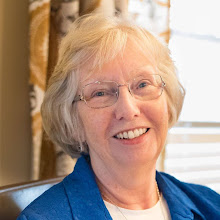 |
| Paul McCartney performing in 2007. Photo by http://www. flickr.com/photos/richardgunn/ with/1789561568 /#photo_1789561568 |
My mother said it best: "You're a real stick-in-the-mud." As always, she was correct, and she exercised her right as a mother to be brutally honest. If there is a dark side to something, I'm sure I'll find it.
It should not have been a surprise to my mom that I always have a little bit of sad in my life. One of my earliest memories is being carried in my daddy's arms to a wake that was held in a log home up near Craig. This was for a death in the Tuck family, but I don't recall the individual who had died. I also remember riding in the back seat of the car to attend a wake for Alfred Lee Ballengee in 1957. My parents did not shy away from sharing the rituals of death; this was before parents were haunted by the fear of doing psychological damage to their child. We didn't wear helmets when we rode our bicycles either.
The choir at our church was often asked to sing at funerals (this was before the popularity of canned organ music at funeral homes), and since the regular pianist could not leave her work on weekday afternoons, someone from the choir would come to my high school to pick me up, and I would play piano for the funeral, playing slowly and softly. My next-door neighbor in Bluefield, Gwen O'Neal, once described her husband's survival of a serious illness by saying, "I thought we were going to have some slow riding and sad singing." I knew exactly what she meant.
By the time I graduated from high school, between deaths in the family and accompanying the church choir, I had attended many, many funerals. It was hard to deny the tenuous quality of life.
Funerals have taken on a new quality for me, though. Reports of the deaths of acquaintances shoot rapid-fire across the pages of every alumni magazine and school report. Reunions have many empty chairs. Almost all of my high school and college teachers are gone, and my family is decimated by the loss of parents, aunts, uncles, grandparents.
In 1 Corinthians 13:12, Paul writes, "For now we see through a glass, darkly; but then face to face: now I know in part; but then shall I know even as also I am known." This verse comes near the end of the famous "love" chapter in 1 Corinthians and begins the conclusion of the chapter by explaining that we will not be spiritually mature in faith, hope, and love until we are face to face with Jesus and our family and friends who are already delivered from this faulty existence. Our memories in that dark glass grow dimmer as time passes, but as surely as I can touch my face with my hands or brush my hair or rub a sore knee, I will be able to hug my father and place my hand on my mother's face and take Jesus' hand in mine. Then I will understand.
